Text
On Social Media and Personal Anthropology
After some 20 years on social media, I’ve now had a near litany of teachers, friends, and family members pass away, leaving their often daily check-ins on places like Facebook in their wake. It’s strange.
I just spent the last hour or so pursuing the musings of a recently departed friend, who frequently shared a mixture of original scholarly tomes, poetry and artwork, food posts, family photos, and comments from here to there. It’s life giving to have such a record, just for memory’s sake, but also for the sake of preserving some true gems of insight.
It makes me wonder what will come of all of this in the years to come…as we move increasingly to digital media platforms that come and go, and as people become disillusioned with the intrusions of various forms of technology into life that in some ways was simpler, or at least more insular in times past.
Perhaps it’s always been this way…not every journal makes its way (nor need they) into the hands of archivists and biographers, but alas, in this land of everything changing in an instant, of unintended data losses, but also of nearly immortal and unerasable bytes of thought, one does wonder, and perhaps more than a little, cling.
~Sunyananda
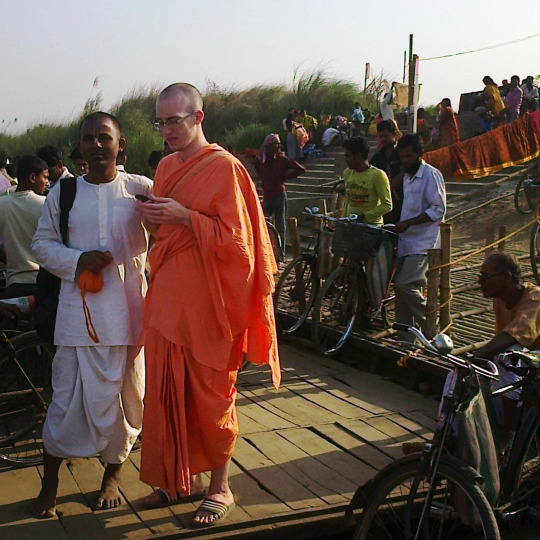
#zen#buddhism#buddha#buddhist#dharma#enlightenment#sangha#awakening#nirvana#spirituality#social media#digital#anthropology#biography
1 note
·
View note
Text
On Reality, God, and Intimacy
God is a metaphor for reality itself. Infinite and without bounds, all encapsulating, everywhere present, nothing-negating, inescapable, and ultimately mysterious.
Anthropomorphism is at best a tool for making such grandeur and scope relatable and conceivable. At worse it confuses the matter entirely, for metaphor upon metaphor, trading reality itself for stories cast upon it.
And while surely reality too includes those stories, they do not implicitly contain it, not in any significant way.
Religion’s task is to draw us closer and closer into union with the divine, which again, is reality itself.
When our stories seek to funnel and manipulate reality into controllable and predictable forms, they miss the mark entirely.
Useful stories act as magnifying lenses, helping us for a time to zoom into and focus on an aspect of reality, and reminding us that the closer we get, the smaller and more infinite parts and spaces reality collapses (and somehow expands) into.
If our stories aren’t doing that, if they’re not moving us toward intimacy and wonder, toward pause, toward harmony, and toward ease, then they’re not worth the effort it takes to continue their retelling.
~Sunyananda
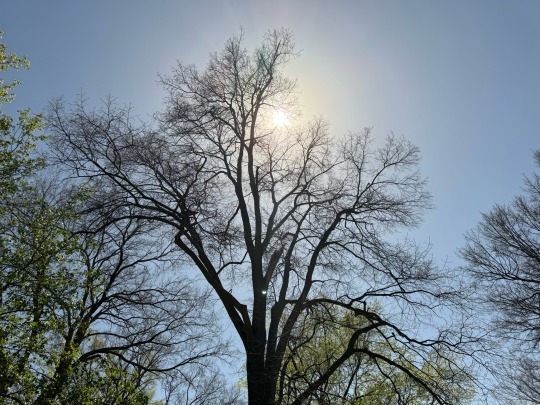
#zen#buddhism#buddha#buddhist#dharma#enlightenment#sangha#awakening#nirvana#spirituality#reality#god#religion#religious#spiritual
1 note
·
View note
Text
On Showing Up and Its Worth
Life is an ongoing heartbreak. In the best of times as in the worst of times, we’re always in receipt of the loss of the ones we love, of our bodies coming undone, of all but everything changing around us, and of being set adrift with nothing to anchor to.
And still, there’s wonder. Like clover pushing through broken sidewalk segments, finding bloom under the open sky. It doesn’t last long, but for those moments, when we persist and are reminded in our experience that if we let it, everything clicks into place…ah, to know that even the fragments of our hearts belong when they’re set along their fracture lines. It’s enough. It’s enough.
The world will tell us not to love, love anyway. Society will seek to strip us of our endurance, endure beyond such efforts. The ravages of time will crash into our chests like waves to a rock cliff, let them hollow out your core- become empty.
The greatest mystery of life awaits our showing up when everything tells us to quit, when all that we thought makes us who we are has been stripped away, and when finally we can breath not in pursuit of our own forlorn agendas, but in resignation to what is.
Then, and seemingly only then, do we find that somehow, all along even, every breath we breathe is as reality breathing itself. Expanding and contracting, in and out. Our own heart beat belongs to the universe, and to its rhythm does it dance. Creation and destruction, life and death, matter and energy, form and emptines, all inseparable and perfectly fit.
~Sunyananda

1 note
·
View note
Text
Riffing on Resurrection
And so we’ve arrived at Easter, the ultimate event in the life of the Christian church, commemorating the resurrection of Jesus after his death and burial.
This day is marked by acclamations that “Christ is risen,” which has been Christianity’s foundational lynchpin for over 2,000 years. And while visions and hopes of a return of Christ (following his resurrection and ascension) have waxed and waned from literal and imminent to metaphorical and even remote in present day, the resurrection is an event that most Christians cling to as both historical and physical, even at the expense of cognitive dissonance.
While the bodily resurrection of Christ is certainly accessible to the realm of the imaginal, an important domain of human experience wherein those truths that may only be conveyed symbolically can be explored and experienced, the fact remains that resurrection does not happen in the natural world otherwise.
Resurrection as a religious motif (death literally becoming life) is one that existed in ancient cultures before Jesus and one that has persisted in religious thinking beyond the confines of Christianity. It’s a high hope, and not infrequently, an unrequited dream with no physiological correlate. What then are we to make of it?
Functionally, the resurrection’s mythos has served to substantiate the life, message, and significance of Jesus in the wake of the violent death that brought about an end to his relatively brief ministry. For his early followers, who were expecting so much outward change in their world by means of his existence (true circumstantial salvation), the resurrection served as a symbol of enduring relevance, metaphysical conquest, and hope.
To the band of disciples who heeded Jesus’ call to worldly renunciation, giving up vocations, possessions, and relationships to literally follow him, who quickly turned to mourning, confusion, and even hiding in the wake of his arrest and execution, resurrection was a culturally primed, convenient resolution to their new quandary of identity in the immediate wake of Jesus’ natural life. And in this, it became reality as an operative commitment.
In many ways the death of Jesus was a literal “dark night of the soul” for his followers. Pushing through the doubt, disbelief, and dissonance that they no doubt must have faced, and choosing to live in the light of the Gospel anyway, which is to say to take up Jesus’ mantle and continue his work, well, as far as I can tell, that’s resurrection. That’s finding new life from listlessness’ depths and it’s intrinsically meaningful.
The human power to reinterpret our experience, to adopt narratives that reframe our motivations, and further, to regard those narratives with unique realism in defiance of those structures that would otherwise limit us and keep us in fear and isolation, while allowing us to carry on in love, constancy, and peace, according with a set of declarative values, is a superpower. As such, this power (and tendency) is one that deserves conscious and intentional wielding, and in this, mindful critique lest it take on a life of its own, independent of the agency (and responsibility) of its wielders.
Jesus’ dying on the cross and rising in our hearts, in our motivations, and in our resolves isn’t a small thing. But its implications are also not implicitly clear. One might ask, what is Jesus’ message if not an utter inversion of the temporal world’s power structures? What is the place of a Messiah whose life was prematurely stamped out? Or of a resurrection whose unqualified literality has been dismantled?
The story of Christianity is essentially one of paradox, or to put it another way, of the non-dual harmonization of seemingly unreconcilable dichotomies. This alone places the tradition in a wider stream of the world’s wisdom traditions, which are born of a collective effort of long term grappling with the finitude of our individual lives and the infinitude intuited at reality’s heart.
In the realm of paradox, it’s no problem for unjust and oppressive structures to exist atop a substrate of utter transcendence in one’s direct experience (alas, the “Kingdom of God” is like this). In the stream of infinity, there’s no difference between one moment or one lifetime, and eternity. In the purview of metaphor, historicity doesn’t limit truth.
More could be said, much more even. But at their core, the non-dual traditions always speak toward the inability of language (and beliefs) to encapsulate truth. These traditions always enjoin us to practice, which is to say to experience and realization born of doing and being. But what is one to do? How does one practice and be in the light of resurrection?
Mark’s Gospel, the earliest account of Christ’s life, which I invoked in my Good Friday reflection, ends (16:8) with three of Jesus’ female disciples encountering his tomb empty, and in response, “trembling and bewildered, the women went out and fled from the tomb. They said nothing to anyone, because they were afraid.”
That’s it. Sometimes our praxis of faith is bewilderment and quietude. Sometimes it’s trembling and fleeing. In many cases it’s haunting, in so much as it takes us up and carries us to unexpected places as we seek to digest our experience. A life of faith isn’t all made up of reassurance and comfort, of certainty and creed, indeed such curated sterility isn’t really life-giving so much as it is infantilizing. Mature faith takes on, of necessity, a much wider and fuller breadth.
Recently I’ve been struck by the use of the peacock as one of the early symbols of Christianity. It seems that in the ancient world it was regarded as an animal whose flesh did not decay, and was thus understood as an analog for the bodily resurrection of Christ. Of course today we know that this is an utterly fictional notion, and while it has thus been rendered an inept analog, the imaginal motif has proved enduring (one can even spend tens of thousands of dollars on vestments so embroidered). This is not unlike the resurrection of Christ itself, which while proving inaccessible to the realm of historicity, has gained enduring life as a dream, a hope, a metaphor, a commitment, and yes, at times a quandary.
Today the tomb is empty. Things are not as simple as we have thought them to be, and the implications are unsettling.
It’s okay. There’s life and purpose ahead, there’s integration and even resolution. It’s from this very ground that the whole world-spanning tradition of Christianity has arisen, both in the vein of perennial wisdom, contemplation, and beauty, and in the perversion of those things. Where we end up has all to do, I think, with how we approach the unsettling appendant to the perception of the empty tomb. Either with reverence and hesitancy, or with nuance-less confidence and words born of the pathological need to know.
~Sunyananda

#Christianity#Christ#Jesus#religion#religious#faith#contemplation#contemplative#mystic#mystical#mysticism#spirituality#spiritual#Easter#resurrection#zen
0 notes
Text
Thoughts on “Good” Friday
In both the Gospel accounts of Mark and Matthew, Jesus’ last words are spoken as “My God, my God, why hast thou forsaken me?”
I’m always taken up with these words, which seem so important. Jesus appears here fragile, on the cusp of death, having been betrayed by one of his followers, wrongly condemned, and ultimately violently executed, after having spent the preceding night in great anguish, knowing his impending fate and praying to be delivered from it, before accepting his lot on the cross and coming to accord with it.
Christianity rightly gets some flack for its obsession with death and sacrificial atonement. There certainly are elements of the tradition that look at the whole Passion narrative as nothing more than some cosmic balancing act, somehow born of an ultimate love. Perhaps that works for some, but I find those suppositions untenable. That said, in a very real way, we’re all obsessed with death, and it is what motivates so much in each of us, consciously and otherwise. But perhaps more on that at another time.
For now, I find a much more compelling tale in the story of a man from humble means, conceived out of wedlock, raised to work with his hands, taken up at an early age with the great questions of life and death that would lead him often into the temples of his culture, and ultimately to their fringe in joining the movement of John the Baptist, and eventually (in the wake of John’s own state sponsored execution) taking up his mantle as an itinerant and iconoclastic wisdom teacher.
In even the surviving, closely curated works of bio-hagiography that we know as the Gospels, in Jesus I see a man of rare consciousness, who tapped so clearly into the cosmic mystery that he realized his own unity with the divine, and sought to show others the way into this same reality, inviting them to manifest the Kingdom of God, not only as a physical reality with their dispositions and actions, but perhaps most solidly as an ever accessible eternal, metaphysical reality undergirding the temporal world of dichotomous form that so many of us most frequently inhabit.
The Gospels tell the story of a man who realized his own oneness with God, but who nonetheless remained firmly human, prone from time to time to fits of wrestling with his own conscious experience of (and as) the sacred, not least in Getsemani or in his last words on Calvary.
There’s much that can be unpacked here, and of course, there’s the entire account of the resurrection that demands some light in the wake of Jesus’ death, but first, on “Good Friday,” our teacher, the wayshower in whose steps we seek to walk, is dead.
In a meaningful way God is dead, and with him our hopes, perhaps even all of our efforts leading up to this point. For years we’ve followed this man, expecting his teachings and claims to shake up the world’s structures and bring about deliverance and justice. But rather, here he hangs, subject to those very forces, ultimately not able to outrun them himself. And here we wait, shaken, disturbed, perhaps even in hiding, but in all certainty, in not knowing…And for now, that’s a “good” place to be.
~Sunyananda
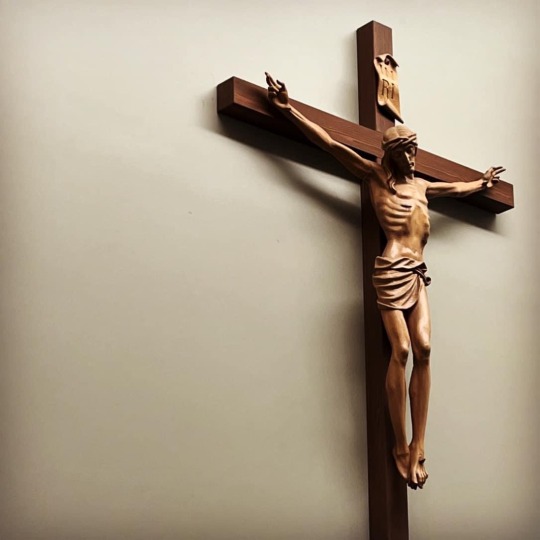
#Christ#Christianity#crucifixion#Jesus#the way#good Friday#spirituality#spiritual#mysticism#mystical#alternative orthodoxy#contemplative#contemplation
0 notes
Text
Path Notes for Meandering on the Way:
1. Attentiveness itself sanctifies.
2. The nature of being is ultimately mysterious.
3. Simplicity is the substrate of spiritual life.
4. Everything is impermanent and insubstantial (especially us), and, there’s a wider stream to which it all belongs.
5. Contemplation in quietude is supremely important.
6. Reality is singular but experienced as two (and maybe even three).
7. When we try to eff the ineffable we invariably “F” it up.
8. Wise companions on the Way are essential.
9. Humans aren’t so special, and, our lives are precious.
10. If you can become a student, everything can become a teacher.
11. God is a metaphor for reality. (Thanks Barnet)
12. When it comes to religion “knowing only one you know none!” (Thanks Muller)
13. There is truth beyond the reach of historicity.
14. Sacred writ contains both the best and the worst of us, enshrining it all as content for contemplation.
15. That which we concern ourselves with ultimately becomes God for us. (Thanks Tillich)
16. Life untethered from death is anxious. Death untethered from life is macabre.
17. Eternity is not separate from the present, and it demands to be tuned into.
18. Awakening is perceptual in nature, and somatic in consequence.
19. Philosophy that evades or resists experience is something other than spirituality.
20. Life precedes doctrine; nature is the most authoritative holy book. (Thanks Aquinas)
21. No one has it all right, and that’s alright. Integrous spiritual life requires openness, flexibility, and a heart for exploration of the unknown.
~Sunyananda
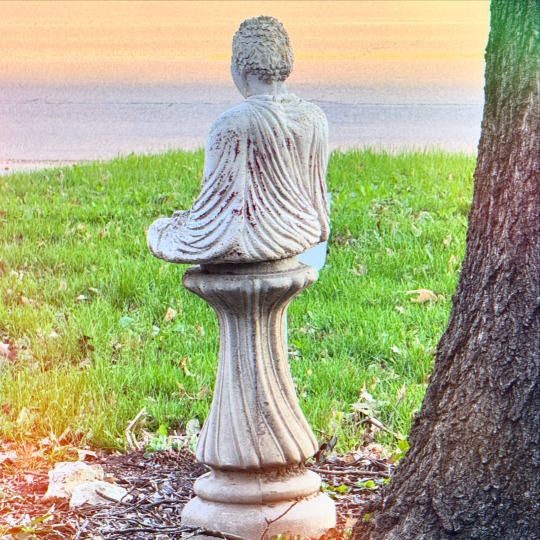
5 notes
·
View notes
Text
On Finding One’s True Self
To find yourself in nature,
you must resolve to seek in all of it-
not just in the obvious wonders,
of forests, meadows, oceans, and mountains,
but in dusty city air and mosquito bites,
in unrequited love,
in hunger and roof leaks,
in cancer and surging fuel prices.
Where after all does the real not reach,
nor nature not incarnate?
~Sunyananda
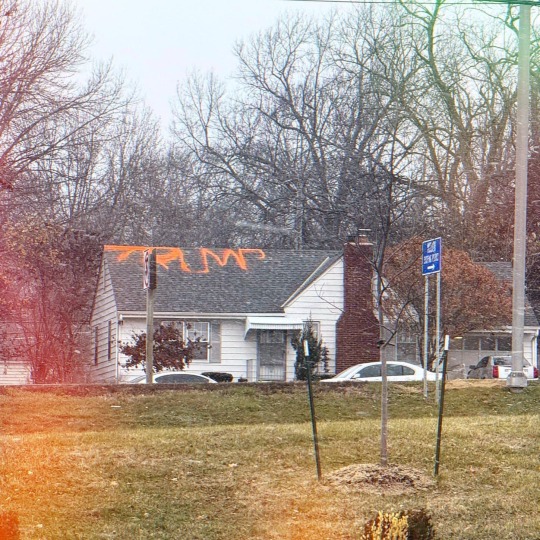
#zen#buddhism#buddha#buddhist#dharma#enlightenment#sangha#awakening#nirvana#spirituality#poetry#poet#poem#true self#self discovery#nature
1 note
·
View note
Text
On Christianity as a Way of Wisdom
In Christianity, folks are often taken up with some amorphous notion of the concept of “salvation.”
Perhaps it is linked to some post-mortem heavenly reward, perhaps to a sense of supernatural guardianship in this life, or even to a sense of simply being “chosen.” All of these seem to fall short of enduring solace, or even believability over the course of a routine human life. It’s no wonder that faithfulness is so revered when it’s so unclear as to what one is being faithful to and why it matters.
It seems that adding some specificity to the soteriological assumptions of the Christian tradition is essential to understanding its place among the world’s wisdom traditions.
In the book of Genesis, the foundational mythos of Judaism portrays a story of humankind falling into fractured relationship with God, that is, into separation with the essence of reality itself by partaking of the “forbidden fruit” of the “Tree of Knowledge of Good and Evil.” The end result of this act is humanity’s present lot of suffering and death.
Humankind’s “fall” into separation from cosmic unity, utter belonging, and eternal continuity is the state from which it stands to be saved, which is to say from entrapment in unaware dualistic cognition.
While the mainline Church in its many iterations has long been stuck in trying to understand the essence of salvation through various theories of sacrificial atonement, it’s far more sensible to understand Christ as a wayshower, whose own cognition was so well attuned to the sacred (to reality itself) that he could rightly claim to be one with, and even as, God, and deliver others unto such conscious realization. Indeed in Christ “God became man, so that man might become God.”
In this, we might understand that Christ died not “for the sins of the world,” but rather *by* those sins. Humanity doesn’t have a very good track record of relating to its most realized saints and sages, who show a way beyond the matrix of dichotomous thinking and materialistic preoccupation.
Salvation in Christianity is essentially deliverance from ignorance of our own true identity, and thus from our intergenerational lack of meaning, from our errant dispositions and behaviors born of mistaken senses of ontological individuality, and from the fundamental illusion of separation from the rest of the real.
To be reborn into “new life” in Christ, is to be reunited with eternity, consciously (if not at the limits of conceptual knowing), and to realize an enduring peace, which “surpasses all understanding,” with confidence in “life everlasting” manifest in this very moment, where “God’s kingdom” ever abides. Such salvific experience yields a way of life that then spontaneously materializes the “fruits” of “love, joy, peace, long-suffering, kindness, goodness, faith, mildness, and self-control.”
But seeing as “faith without works is dead,” Christian salvation is not accessible through belief alone, it is rather realized through the practice of faith, which itself is situated in the sacraments, which are instruments of grace which serve to make fruitful one’s works of faith.
In choosing to be reborn in baptism and confirmation, one adopts of container of living that is marked by the great doubt demanded by all contemplative and mystical paths, wherein one practices mindfulness of one’s thoughts and deeds, confessing one’s forays into the delusions of separation to one’s self and to spiritual preceptors who can help guide one’s spiritual efforts.
Living in such a way, one commits to practicing the sacralization of one’s life in the re-membering that is the Eucharist, wherein the mundane is, time and time again, realized as intrinsically sacred and wrapped up in divine eternity, until the whole of one’s experience can be clearly percieved and interacted with as such.
Sacramental life further consecrates our familial and communal belonging by providing access to marriage rites and holy orders which give intentionality to a primary vocation in life, wherein one may not only practice but propagate the gospel from an appropriate station of life, thereby gaining a multi-dimensional grasp of the commitments that one has otherwise undertaken as a participant.
And finally, even amidst our doubts, at our last moments, sacramental life stands to remind us, in the receipt of extreme unction, of not only our commitments but also of the inevitability of their fruition and outcomes, if even beyond the limits knowable to our conscisous experience.
The Christian path, or “the Way” as it was earlier known, is one of doing, not just believing. It is a life of self-emptying, and moment-to-moment prayer in a state of unifying consciousness.
This “Way” calls all to its path, and is echoed perennially in all wisdom traditions, for as Augustine said “that which is known as the Christian religion existed among the ancients, and never did not exist,” both before and after Christ.
Christianity is a Way of according with reality entirely, and of finding ourselves inextricably enmeshed with the very fabric of eternity, and in our suffering merely distracted by the impulses of our seeming individuality.
~Sunyananda

#zen#buddhism#buddha#buddhist#dharma#enlightenment#sangha#awakening#nirvana#spirituality#christianity#Christ#Christian#contemplative#mystical#mystic#the way#wisdom
3 notes
·
View notes
Text
On Religion and Certainty
Spirituality isn’t so much about having all of the answers as it is about having good questions, and being progressively invited into a dance of unknowing.
Healthy spirituality welcomes our thinking as much as our surrender to being as it is at the edges of contemplation’s reach, where all encompassing wonder tends to take over.
Being in wonder, being with mystery, being both okay and unsettled in such places…that’s the stuff of wisdom and enlightenment, which are known less to specific cultivation than to amorphous grace.
~Sunyananda
7 notes
·
View notes
Text
On True Freedom
Today, even if you do nothing else, pause for just a moment. Place your hand over year heart, and feel its beat. Without falling into rote conceptualizations, scientific or spiritual, just feel. Lubdub, lubdub, lubdub.
Life exists in such a narrow space. Just enough tension, just enough relaxation. And how it all really comes together? Who knows! And yet, here we are. Running about, with ever so much ado, with so much trying to justify our own being, when the only real answer is wonder, when the only real salve is awe.
Life’s real imperative is to take note. When we do that genuinely the rest takes care of itself, as we surrender into unknowing, either through the gate of knowledge’s limits, or that of the overwhelm of even thinking to find such lines. It doesn’t really matter from which direction we turn to face reality, only that we do it.
Lubdub, lubdub, lubdub. Breathing in, breathing out.
Enoughness isn’t to be found in any particular accumulation of conditions, possessions, or ideas, it’s the ground of being that makes such seeking possible.
True freedom in life is to be found in taking refuge in the great mystery that undergirds all that is, which itself is utterly accessible anytime the bounds of our homeostatic processes are maintained, for as long as they’re maintained. Which is to say, if our consciousness is intact the door is open wide. And even when such processes come undone, well, the universe itself which upholds and sustains us too receives us all.
Just be friends. Remember to just be.
~Sunyananda

2 notes
·
View notes
Text
On Charity and Contemplation
The unfortunate reality is that the “eyes to see” and the “ears to hear” are not universal attributes. For this reason, charity is a demand particularly prescribed to the mystic. The fruits of the contemplative way have few other modes but grace and charity to take root in the hearts and minds of those not otherwise inclined to a life of spiritual practice. While the way is ultimately vast and open to the masses, few are willing or able to traverse its paths.
~Sunyananda

#zen#buddhism#buddha#buddhist#dharma#enlightenment#sangha#awakening#nirvana#spirituality#contemplative#contemplation#mystic#mysticism#charity
2 notes
·
View notes
Text
On Religion and Appeals to Mystery
The Christian appeal to mystery has received a lot of flack over the years, and, perhaps rightly so. When school aged children are able to formidably question the the logical and rhetorical viability of various dogmas and doctrines presented in their catechism classes, and the only response that can be summoned (by religious professionals, mind you) is that “it’s a mystery,” who’s to blame the critiques?
I’ve often noted that when we try to “eff” the ineffable we invariably “F” it up. When we try to enshrine those attempts at expounding that which lives most viably in the realm of the intuitable and experiential, we do so doubly.
There is a legitimate place for the appeal to mystery in religion and spirituality, a big place even. It’s the logical endpoint of a whole host of religious and spiritual experiences. That place, however, is not to prop up untenable doctrinal suppositions with logically fallacious appeals.
Enshrining the sacraments (for instance) as ultimately mysterious, yet somehow efficacious instruments of grace, is essentially an invitation to direct experience, beyond the limitations of any doctrines that could be dreamt up in pursuit of some sure-to-be lackluster explanation. This invitation to orthopraxy in favor of orthodoxy is the stuff that good religion is made of.
Spirituality has long made use of poetry, particularly in its contemplative and mystical streams. Poetry wisely but points in the direction of that which doctrine seeks to otherwise all but entirely encapsulate. That which is pointed to defies such encapsulation, tolerating only inference that guides one toward experiential investigation.
Mystery is not a stopping point for anything but relative, dualistic thinking. Properly framed, it is a bounding point into the “new life” so often promised by religious schemas, but so often inaccessible via their impenetrable web of metaphysical sureties that leave no room for question, let alone the practice of unknowing.
Truly, unless you acquire the mind of a child, you cannot enter the Kingdom of God (Matt. 18:3).
~Sunyananda
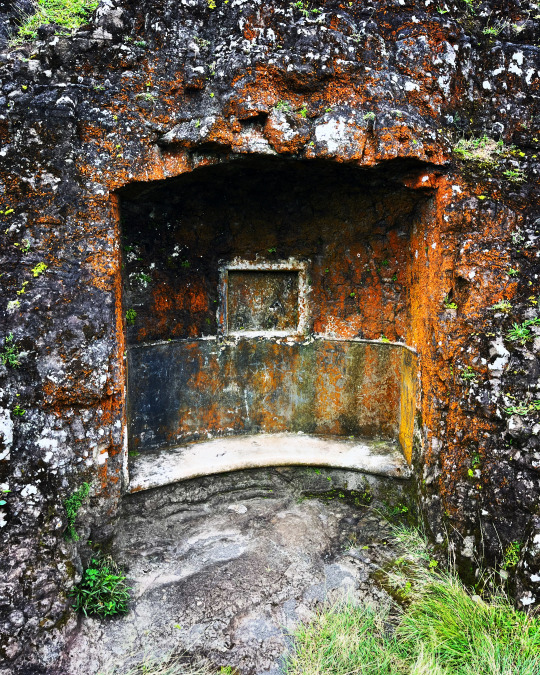
#zen#buddhism#buddha#buddhist#dharma#enlightenment#sangha#awakening#nirvana#spirituality#mystery#religion#religious#contemplative#contemplation#mystic#mysticism#spiritual#christianity#Christian#god
1 note
·
View note
Text
On the Pastoral Task of Psychotherapy
So often the work that psychotherapists do is pastoral in nature, that is, walking alongside patients (lit: “those who suffer”), helping them probe the depths of their own consciousness, to make connections, and to otherwise become aware of various potential pitfalls inherent in life, while ideally illuminating a path of wisdom through metered contemplation of one’s lot.
As a discipline, we like to squawk alot about diagnoses and treatment plans, but at the end of the day most mental health maladies come and go on their own. Resilience is the human norm.
The field’s clinicalization of the human condition is rarely helpful, and anecdotally more harm seems to come from enshrining symptomatology as something to possess, distinct from one’s self, with its own name, genesis, and life cycle, instead of simply normalizing symptoms as affects of certain experiences, that tend to be fleeting on any longitudinal scale.
Our field, like many, struggles to justify its own existence with honesty, and instead tends to opt for obfuscation, and the obvious made inscrutable through the application of jargon, and elitist empathy.
It doesn’t have to be like this though. If we can step outside of the twisted demands of the for-profit healthcare milieu, and the machinations of insurance and managed care schemes, there’s a huge place and need for intentional elders and experts in the human condition. There’s a niche for experienced guides well-versed in traversing matters of the head and heart with presence and concentrated awareness.
Owning this place, though, takes courage and honesty. Something that is far too often lacking in the contemporary era, where almost everyone is (out of survivalistic necessity) consumed with the task of scratching out minimally stable lives in the contorted societal landscape of modernity.
~Sunyananda

#zen#buddhism#buddha#buddhist#dharma#enlightenment#sangha#awakening#nirvana#spirituality#therapy#psychology#psychotherapy#pastoral#clinical#mental health#mind
0 notes
Text
On Grace, Time, and Enoughness
In a very real way, the allayer of all our anxieties is none other than this very moment.
It can seem trite, but beyond our direct experience, almost nothing is under our control, and often even within it!
If we can learn to be present, fully present, with our conscious attention made available to the miracles that allow us to be sustained for even a second, there’s so little to stress about or concern ourselves with.
Time itself is the great bestower of grace that allows the intrinsic harmony and perfect fit of reality’s contents to be revealed, from one moment to the next, unbroken.
There’s nothing to cultivate and everything to realize.
~Sunyananda
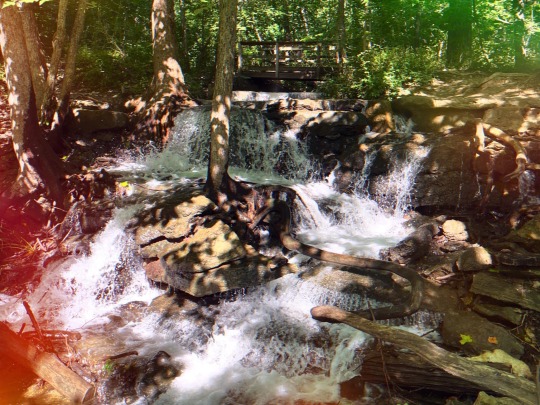
3 notes
·
View notes
Text
On Evangelism and the Like:
It’s easy to forget the spiritual endeavor when things are going well in our lives. When the breaks from readily apparent entropy give rise to a sense of stability, and where joy, busyness, and endeavor otherwise distract us from the wider quandaries of being.
And perhaps it’s best that way.
Perhaps it is that the abandon of metacognitive and metaphysical concerns, interrupted from time to time with unbridled suffering, and followed by a gradual ascent back into near-sanity (usually, anyway) is the way to go. We’re pretty resilient creatures overall and after all.
But that’s not always an option. For some of us, the quandaries of being are so unsettled that they demand nothing short of our full attention. And the resolutions that can be had are nothing short of the profundity that demands exposition.
The again, maybe it’s all entertainment. Killing time sublimated as probing into the nature of time and how (or if) it kills- whatever!
It wouldn’t matter much. Sublimated doing is still doing; even muted sounds break through the silence. The question then is what must I do? How must I live? Who gets to choose? Really, most of us don’t.
Time and time again we see is that spirituality has never been for the masses, not really anyway. Usually, without the doom of metaphor taken to creative extremes, or the promise of extravagant post-mortem rewards, there’s no dog in the fight. Ado beckons, and you know what? Try letting blessed ignorance be.
Then for those that remain, scathed and yet committed, the journey awaits. No one will, or can push you to anything real, not even by a single inch. There’s no choice, and no forcing. Only calling followed by its heeding, simply because one must.
As the old adage goes, when it comes to the spiritual journey, best to not get started, but, once started, best to finish.
~Sunyananda
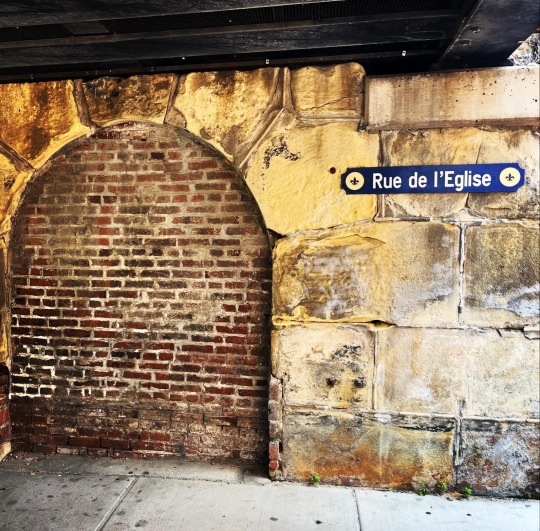
#zen#buddhism#buddha#buddhist#dharma#enlightenment#sangha#awakening#nirvana#spirituality#evangelism#evangelist#evangelical#religion#religious#spiritual#journey
1 note
·
View note
Text
On the Way of Wisdom
Everything in our lives is temporal. It’s all coming apart and undone all of the time. Little by little, bit by bit, catastrophe after catastrophe. This is nothing but inexorable fact.
The true miracle of life is that anything comes together in any meaningful form and then lasts for any time at all.
Instead of seeing things this way, however, with entropy (emptiness) as the substrate upon which all form arises and into which it dissolves, we assume those miraculous comings together as the foundation of our being. And, in doing so, we suffer when reality shows its face to be otherwise, as inverse to the delusional schemas, to which we become so attached.
To become aware of, to accept, and to accord with reality as it is, is the only way to end our strife and to find any measure of peace.
This peace however is not the absence of mourning, loss, sadness, or pain. Indeed, those things continue to significantly accompany our progression through manifest reality for as long as we continue through it in our own recognizable forms.
The peace that arises from awareness and acceptance come accord, of and with reality, is one defined by gratitude, reverence, and awe. Its tears flow freely, recalibrating the eyes and tending well to the heart.
Grief predicated on knowing the essential transience of that which is grieved, that is, knowing-grief is somehow infinitely more tolerable, marked as it is by wonder for the miraculous feat of being itself and for connection, against all but infinite odds.
Our eyes, both those situated in the head and the heart, function best as organs of perception rather than projection, of knowing rather than longing.
And of that knowing- it’s not just of the processes of reality’s coming together and undone that matters and transforms, but of a much wider gestalt into which such binaries collapse, and wherein stillness emerges from activity. No coming, no going. Infinity pulsating into infinity, infinitely. Where then do we draw the lines of distinction, and give root to our errant conceptualizations?!
Truly, when we surrender to being beyond conception, to knowing beyond even perceiving, do we find the courage to carry on in full- as if there were any other alternative to flee to.
Upon each moment hinges the whole of what is and what is not, of the past and the present, moving only as a mirage, as the cosmic play of time and space, of particles and waves.
Behind all of the masks, there is but one faceless actor. Our job then, is to discover who, if not what it is.
Who am I? What is this?
~Sunyananda

1 note
·
View note
Text
On Soteriological Exclusivity
Religious exclusivity is an absurdity in the light of modernity, and specifically in the light of the intermingling of cultures on a global scale, wherein the commonalities of religious experience and practice can be plainly examined not only through the related experience of individuals, but also understood through the lenses of psychology, anthropology, and sociology.
Singularly salvific schemas built upon metaphysics that are not only challenged by competing systems of thought, but too by scientific observation and inquiry are impossible to hold as such with any integrity.
For religious systems to be most valuable in our contemporary epoch, they must dialogue meaningfully with other religious systems, and with the sciences more broadly. The intention between such dialogue and commingling being the clarification of the purpose and function of various practices and philosophical suppositions (“beliefs”) and an ongoing discernment of the needs that they seek to meet in the human condition perennially.
Beyond any doubt, there is deep wisdom and meaning to be found in many of the world’s religious subcultures and their appendant practices and philosophies. But, misunderstood in a vacuum they have just as much (if not more) harm to dole out than benefit.
~Sunyananda
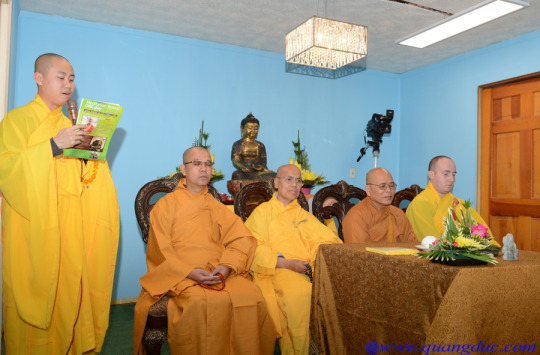
#zen#buddhism#buddha#buddhist#dharma#enlightenment#sangha#awakening#nirvana#spirituality#religion#religious#theology
2 notes
·
View notes